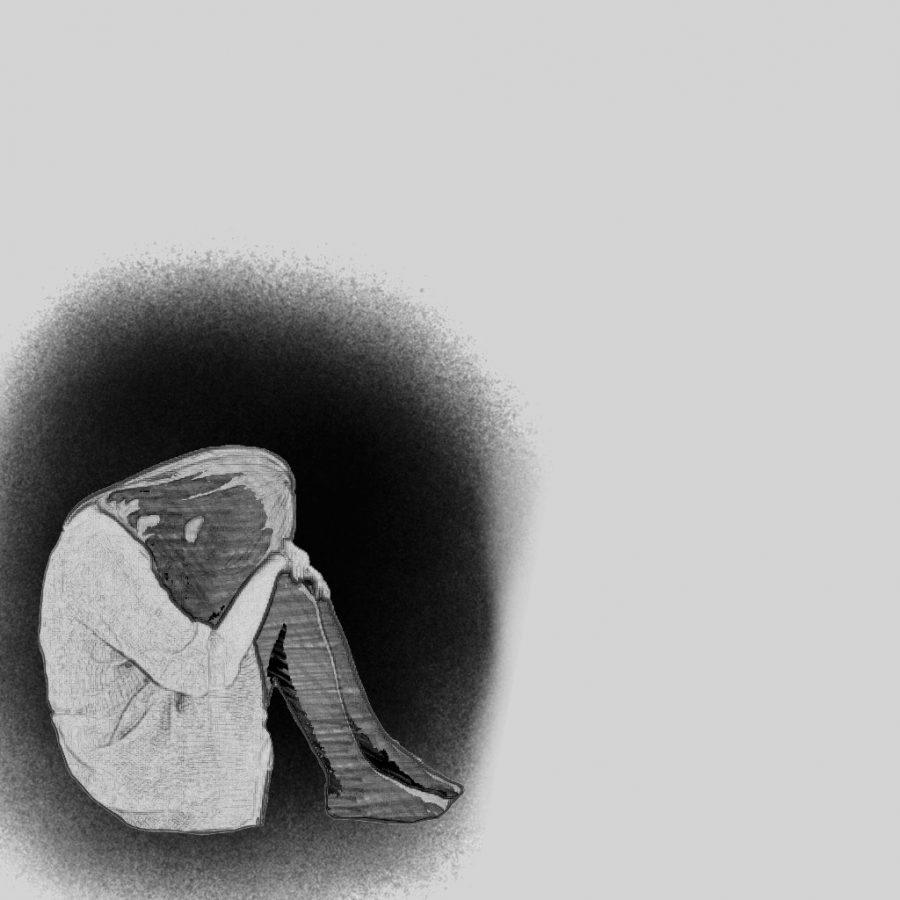We’re Not Okay
Depression, anxiety increasing in teens.
November 20, 2017
E. has been dealing with depression for years. E. found transitioning into the 7th grade very difficult because they felt almost like an outcast, like they didn’t belong. They lost a lot of friends which caused them to fall into depression. When they tried to tell someone, they either dismissed it or didn’t accept it. Even the therapist they went to see brushed it off. Who are people struggling with this supposed to turn to if no one seems to be aware of how destructive and common these things really are?
Depression and anxiety has been rapidly increasing in teens.
Anxiety is the most common mental illness and affects 25% of all teens as opposed to only 7 years ago when 20% were affected. About 20% of teens experience depression as opposed to only 3 years ago when 11.5% were affected. These mental illnesses can often make the teen suicidal and suicide is the third-leading cause of death for people ages 15-24.
K. ‘s anxiety has been causing a disruption in their life. They avoid going outside and panic about some of the smallest things. This is something they deal with every single day. They didn’t really tell anyone but their parents figured it out because they would have anxiety attacks before going to school. This just goes to show what a severe effect it can have on your life.
Although you can’t really see depression, there are signs that indicate someone may be suffering from it. Things like isolating themselves, losing interest in their favorite activities, eating too much or too little, and sleeping too much or too little are all signs of depression.
“For a while, I was failing all of my classes, I wasn’t doing any work, it really, like, completely totaled anything. Like my friendship, I lost a bunch of friends. I was like a completely different person.” Says a student at SBHS.
People who suffer from anxiety experience unease that casts a shadow over all of their activities.
“I see it like a protective alarm going off if I don’t seem comfortable.” Says a teen with anxiety.
They often worry about things of little significance or things that have not yet come to pass. Fatigue, nausea, muscle tension and headaches are some of the physical symptoms of anxiety. Sleeplessness is another sign of anxiety because people with the disorder often feel as if they can’t stop their mind from racing. People with anxiety are also jumpy, fidgety and easily startled because the disorder causes a sensation of always being on edge or very restless.
“It changed my social life. I would only talk to people I felt comfortable with and I used to go outside all the time but I started staying inside,” said a student at SBHS with anxiety.
There are many possible causes for depression. One would be a lack in serotonin and/or dopamine, also known as the “happy hormones”. It can also be genetic. Studies show if a relative experienced depression then you are much more prone to as well. The most well known cause would be some sort of trauma. A terrible personal experience can leave scars and often times depression.
“It’s very lonely and dark. It’s literally like I’m trapped in a dark box,” said a teen with depression.
Anxiety does not root from a personal experience. It may run in families, although as with all mental-health issues, the causes are typically a combination of biological and environmental factors. An imbalance of naturally occurring brain chemicals, such as serotonin, dopamine and nor-epinephrine is often seen in people with anxiety.
These mental illnesses are often thrown to the side and given less importance than they actually have. If you or anyone you know shows signs of either depression or anxiety, talk about it. It really can make all the difference to have someone there for you.
“Be patient. It’s really hard for some people to talk about it and you just have to be patient and let them know that you’re there for them, and remind them that you care about them and that it’s okay for them to talk to you because sometimes it’s hard for them to trust you,” said a teen at SBHS on how to deal with someone with depression.
“Don’t push them to do things they don’t want to do,” said a teen at SBHS on how to deal with someone with anxiety.
If anyone you know is suffering from suicidal thoughts or show signs of depression/ anxiety call the National Suicide Prevention Lifeline:
1-800-273-8255
There’s always someone willing to listen, we’re here for you.



Juliana • Dec 19, 2017 at 9:50 am
You found a topic of universal interest and developed it with impressive variety and authenticity. Very helpful indeed. Well done!
Craig • Nov 28, 2017 at 1:30 pm
My personal solution to my school anxiety was to cheat/copy every assignment I was too stressed to do. We have friends for a reason, so don’t be scared to reach out and get the help you need.